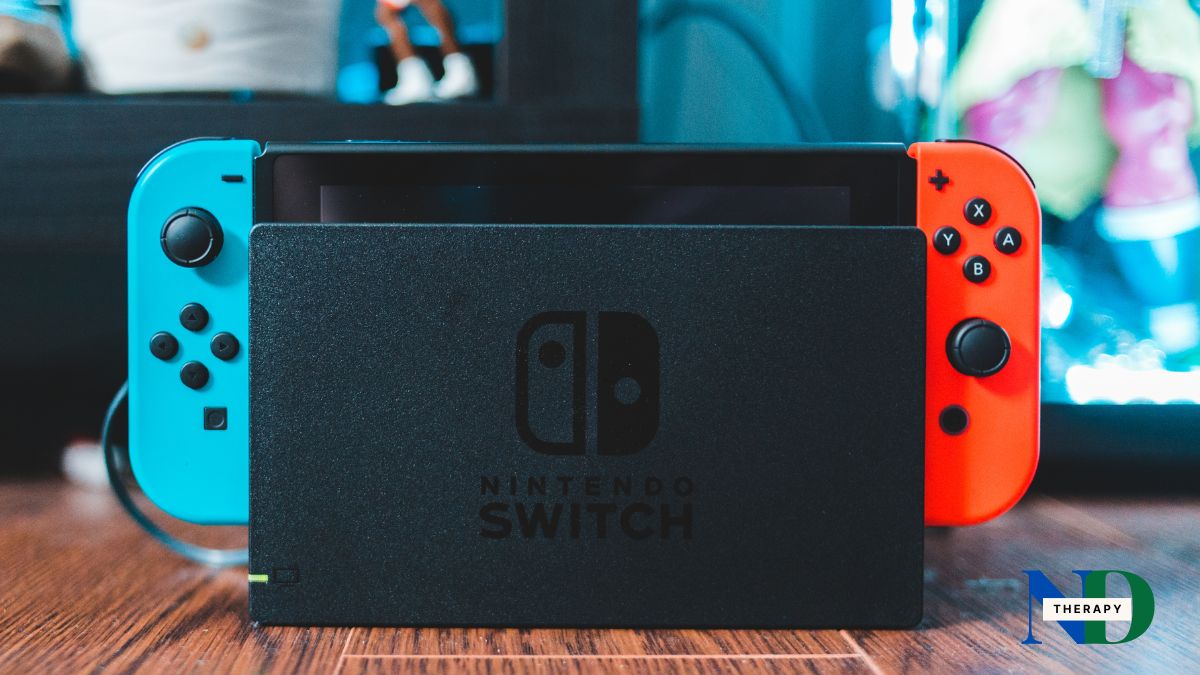
The other day I was reading an article discussing the negative impact gaming can have on people with Autism. It got me thinking about trends I am noticing from the Clients I have who both have Autism and some form of Gaming Addiction. As a gaming addict with autistic traits, I have to watch myself carefully to avoid becoming addicted. Most of my Clients with Autism have had difficulty managing their gaming, with most becoming addicted quickly. Addictions often do not start out as something all-consuming. For people with Autism, obsessions often lead to addiction.
What Are Obsessions?
Many people with Autism have obsessions, which is another way of saying a strong interest in something. Obsessions can include something general, like astronomy, or something specific, like a type of game or activity. As most children with Autism are highly intelligent, they often spend countless hours researching and learning about their obsessions. Asperger’s Syndrome has been called the “little professor” disorder, as children with Autism often like to inform and instruct others about their obsessions.
Obsessions often last a while, often for a couple of months or longer. During this period, getting the child to talk about anything outside the obsession is hard. Social interactions suffer, as the child will ignore the interests of others. Many Autistic children do not understand the viewpoints of others and will not understand how their obsession may not be as attractive to someone else. Over time, obsessions will change, causing the cycle to repeat.
Why do Autistic people have obsessions? My personal theory is they want something to focus on, to drown out the negative stimulation they feel throughout the day. Most autistic people do not experience the world as neurotypical people do. Often senses are heightened for people on the spectrum, sometimes to the point of pain. I have seen autistic children cry and scream at the sound of a loud noise, as the sound was literally painful. By focusing attention away from the stimulation, the experience of pain is lessened. In a way, obsessions are coping skills needed to function.
Are Video Games Addictive?
While some would argue addiction can only be chemical, this viewpoint is quickly being abandoned. Behavioral addictions, including gambling, sex, and gaming, are full-blown addictions, just like drugs and alcohol. I recently wrote an article about gaming addiction and how it is addictive and can be for anyone. In short, video games can be highly addictive and, in some cases, dangerous, especially to someone with an addictive personality.
Video games are addictive due to the stimulation they provide. The more immersive, the more addictive they will be—the more realistic the graphics, the more realistic the experience. With the advent of virtual reality, gaming addiction will skyrocket over the next ten years.
For someone who has problems living in the real world or someone who has problems socializing, video games offer the perfect escape. Video games provide social interaction and an environment that can be controlled and manipulated. For someone with Autism, who has problems interacting with others and controlling the real world, video games are the solution.
The Beginnings of Addiction
How does addiction begin for the typical child with Autism? Just like anyone, they start with the initial exposure. In the beginning, the child will play the game, often not thinking much about it. There may be resistance at first, as many children with Autism have problems trying new things. They will begin the game and start to enjoy the experience. At first, the game may be played on and off, especially if the game is challenging. Interacting with others who play the game may help the addiction along, depending on the amount of social interaction the child wants. Over time, the child will begin to feel good while playing and start to see things they enjoy in the game.
They will start to make goals they wish to accomplish. These goals may align with other children, such as beating a difficult level or obtaining something within the game. Often these goals may be different than a neurotypical child. The autistic child may want to play a particular level repeatedly due to the animations or sounds within the level. I treated one Autistic child who liked to play Super Mario Brothers 3 repeatedly due to the music on one level. He would play this level 10-20 times in a row, over and over for days. When an autistic child likes an activity, they rarely can get enough of it.
The Transition From Obsession to Addiction
Once the child has found a game they like and an activity or goal they want to accomplish within the game, often, the obsession will turn into an addiction quickly. They will begin to demand access to the game, no matter the time or place. It can be at 4 in the afternoon or 3 in the morning; they will want to play it. If they do not have access to the game, they will be thinking about it and planning their time in the game. They will talk about the game to all who listen and will become angry if denied access to the game. This is why most gaming addictions continue, as the parents do not want their child yelling and screaming and will give in to the demands.
Managing the Addiction
If a child is Autistic and addicted to video games, how can it be dealt with? Most parents do not know how to stop the addiction, and often worsen it. The first step is to determine what the child is addicted to. If the child likes a specific game, what is it about the game they like? Is it the sounds, graphics, gameplay? Is it interacting with others? The best way to find this out is to watch them play the game or play it with them. While this may sound risky, the more information learned about the addiction, the greater the chances of beating it. Alternatives can be found once a parent knows what they enjoy about the addiction. Parents should start doing other things with their child and spend significant time with them. At first, this may be difficult for both the child and the parents; however, both will become used to it in time.
Patience
If you have ever had an addiction, ask yourself: how long did it take to recover from it and move on? Most likely, it took a long time. It will be no different for an autistic child. In fact, it will be more difficult and take more time. Children generally do not understand how to moderate and control their behavior. A child does not understand why eating sweets for every meal is bad or why they cannot stay up all night playing video games. Add autism to the mix, and patience will be required. During this period, parents must give their child time to change and not expect perfection. Give yourself realistic goals. Do not expect the addiction to be gone in a week or even a month. It may take years and constant monitoring by the parents. Autistic children eventually become adults, and their behaviors and addictions will continue unless parents work on them now. Parents who are impatient or demand their child to change will only build resentment within their child, making the addiction worse.
In Conclusion
There is a very fine line between addiction and obsession. For someone who has Autism, it is even thinner. As a child, parents need to be an active part of their child’s life and invest their time into playing and educating their child. This includes playing video games and spending time learning about their obsessions. The more interactive a parent is with their child, the better the child will learn. This is particularly the case for a child with Autism. If someone is an adult with autism, they will need to monitor their behavior actively, as obsession can turn to addiction quickly. As someone who is a recovering gaming addict, I have to control my behavior consistently, or I will become addicted. For anyone with an addictive past, this will be true.
- The Mental Health Benefits Of A Smartphone Break - February 25, 2026
- Did A Boy Kill His Adoptive Father Over Nintendo Switch? - February 23, 2026
- Brain Changes Linked to Mindfulness in Gaming Disorder - February 18, 2026







